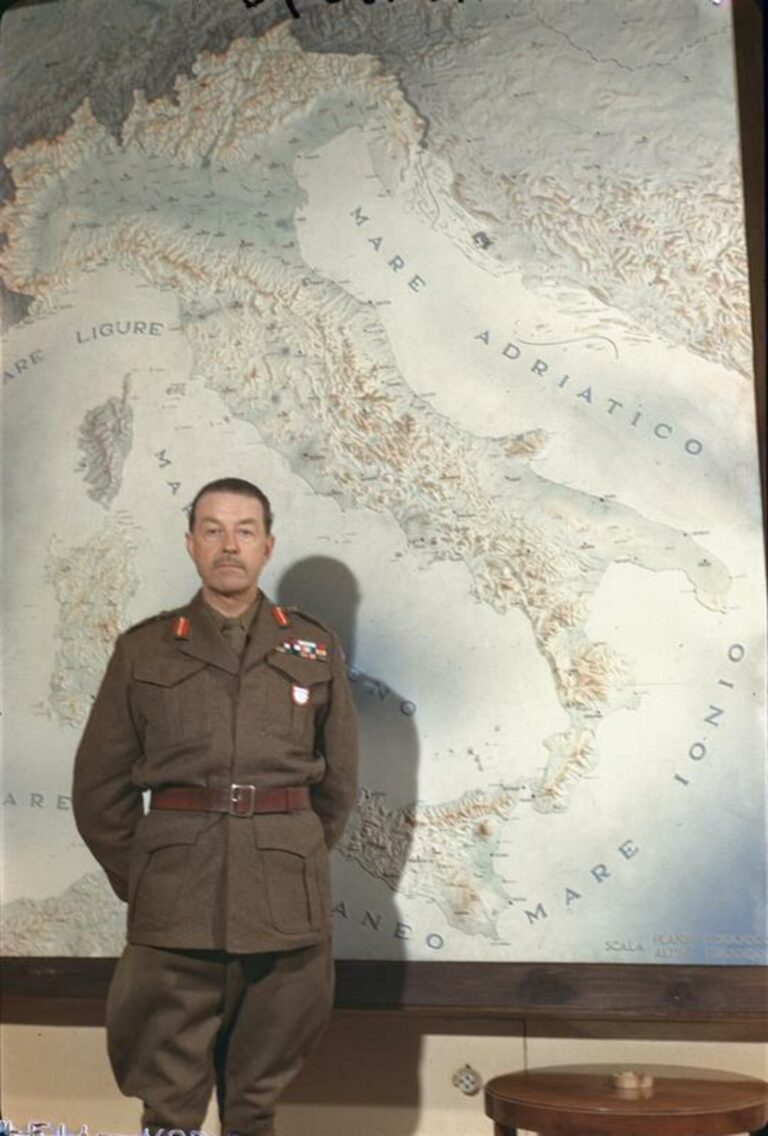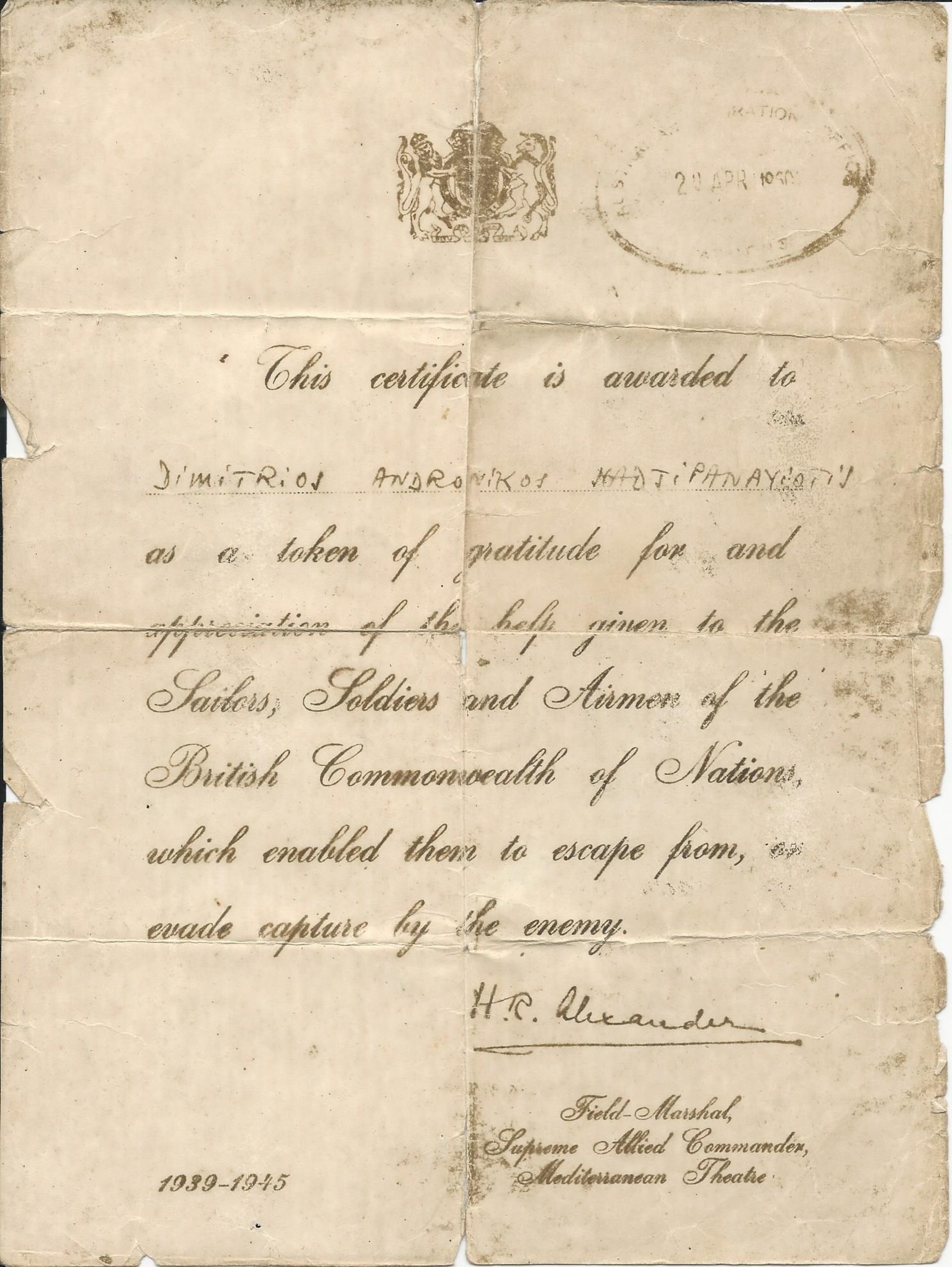On April 6, 1941, the Wehrmacht began their invasion of Greece and Yugoslavia. Within a month, despite strong resistance by Greeks and British led forces, the Allies were overrun and forced to capitulate.
In March a 60,000 strong Imperial Expeditionary Force of the British Empire left Alexandria, Egypt for the port of Piraeus. They disembarked and marched north, in the hopes of bolstering the country’s defences.
By late April the combined allied force were outnumbered three to one, and the British government agreed to Lieutenant-General Sir Henry Maitland Wilson’s advice to withdraw from Greece.
The operation, codenamed: Demon; saw the evacuation of over 50,000 troops, Anzacs among them.
On April 24 the German army reached Thebes. On one evening thereabouts, four Anzacs knocked on the door of Dimitrios Andronikos Hatzipanayiotis.
“He took my four eldest siblings and hid them with neighbours” remembers his son Elefterios.
“In those days we children all slept in one room. He had those soldiers take their places, told them to pretend they were fast asleep, covering all but their heads beneath the blankets.”
At 11pm German troops were at the door. They asked Hatzipanayiotis how many children he had. He said eight.
“They came inside, they counted our heads. They seemed to know how many we should be. Once they were satisfied, they left and the Anzacs weren’t discovered.”
“If they had been… the four of them and my father would have been executed. I’m certain of it,” says Elefterios.

He says that in the hours before dawn, his father left their home with the four Anzacs, and met a group of men outside who were leaving on a truck. When his father returned home a few hours later, he said nothing about what had happened.
“It wasn’t until years later when a letter arrived that he told us about that night. He said they had taken the men [Anzacs] to Chalkida where they were evacuated by submarine.”
A letter from Field Marshall H.R. Alexander thanking Hatzipanayiotis, thought lost since the family’s migration to Australia, surfaced this year and was given to Elefterios’ daughter Maria by his nephew in Greece. The nephew thought it should return to the last living son of Dimitrios.
The letter was in the possession of Elefterios’ eldest brother Giorgos, who died tragically in a car crash only two years after his arrival in Australia. When his wife and son returned to Greece soon after, the letter went with them.
Dated April 20 1960, bearing the coat of arms of Great Britain and signed by Field Marshall H.R. Alexander it reads:
This certificate is awarded to DIMITRIOS ANDRONIKOS HADZIPANAYIOTIS as a token of gratitude for and appreciation of the help given to the Sailors, Soldiers and Airmen of the British Commonwealth of Nations, which enabled them to escape from, and evade capture by the enemy.
H.R. Alexander.
Field Marshall, Supreme Allied Commander, Mediterranean Theatre.
1939-1945.
“My brother intended to seek out those soldiers before he passed. He planned to put classifieds in the newspapers, two of those men were Victorians,” says Elefterios.
His son Harry says the family suspects his grandfather was affiliated with the “Ethniki Antistasi” Greece’s national resistance during the war.
“Why else would those soldiers have asked my grandfather for shelter, a man with eight children to protect. He was a very brave man to take that risk.”
“My grandfather faced hardships as a refugee from Microasia, [Asia Minor] he had prejudice levelled against him in Greece. To finally have this letter returned. It’s an affirmation of his character. It’s the recognition he deserves.”
The Hatzipanayiotis family hopes that by sharing their story, they might hear from the families of others with similar stories; and highlight yet another chapter of the enduring friendship between Greece and Australia.

H.R. Alexander.
Field Marshall, Supreme Allied Commander, Mediterranean Theatre.
1939-1945.”









